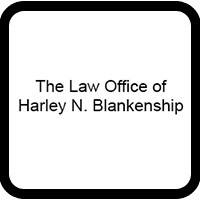Louisville Criminal Lawyer, Kentucky
Sponsored Law Firm
-
 x
x

Click For More Info:
-
Larry Forman Law, PLLC
138 South Third Street, Suite 209 Louisville, KY 40202» view mapDUI, Car Accident, Criminal Defense Top Rated Kentucky DUI Defense Lawyer
I understand the need to prepare a strong defense and takes every case seriously and personally. I will fight to get you justice. I offer free consultations, contact me today.
800-926-1391
Krsna I Tibbs
✓ VERIFIED *Status is reviewed annually. For latest information visit hereOriginally from Atlanta, Georgia, Mr. Tibbs considers himself a Louisvillian, having lived here for two decades and counting. He first came to town to... (more)
Harley N. Blankenship
✓ VERIFIED *Status is reviewed annually. For latest information visit hereHarley Blankenship is a practicing lawyer in Louisville, KY after being admitted to the Kentucky Bar in 1970. He received his Juris Doctor in 1970 fro... (more)
Franklin Yudkin
✓ VERIFIED *Status is reviewed annually. For latest information visit hereI am Franklin Yudkn. I have had years of experience handling legal problem and have been able to handle then successfully for my many clients. Lic... (more)
Sean P. Paris
✓ VERIFIED *Status is reviewed annually. For latest information visit hereMr. Paris has over 24 years' experience in both family law and civil litigation matters. He has received a Martindale-Hubbell top AV rating for attorn... (more)
Jazmyn Sierra Wood
✓ VERIFIED *Status is reviewed annually. For latest information visit hereJazmyn Wood is a practicing lawyer in the state of Kentucky handling family law matters.
Theodore W. Walton
J. Vincent Aprile
Shannon Renee Fauver
FREE CONSULTATION
CONTACTJohnathan C. Ryan
FREE CONSULTATION
CONTACT Larry Forman Louisville,KY
Larry Forman Louisville,KY About UsLarry Forman
About UsLarry Forman Contact UsCall or Email Now
Contact UsCall or Email Now




